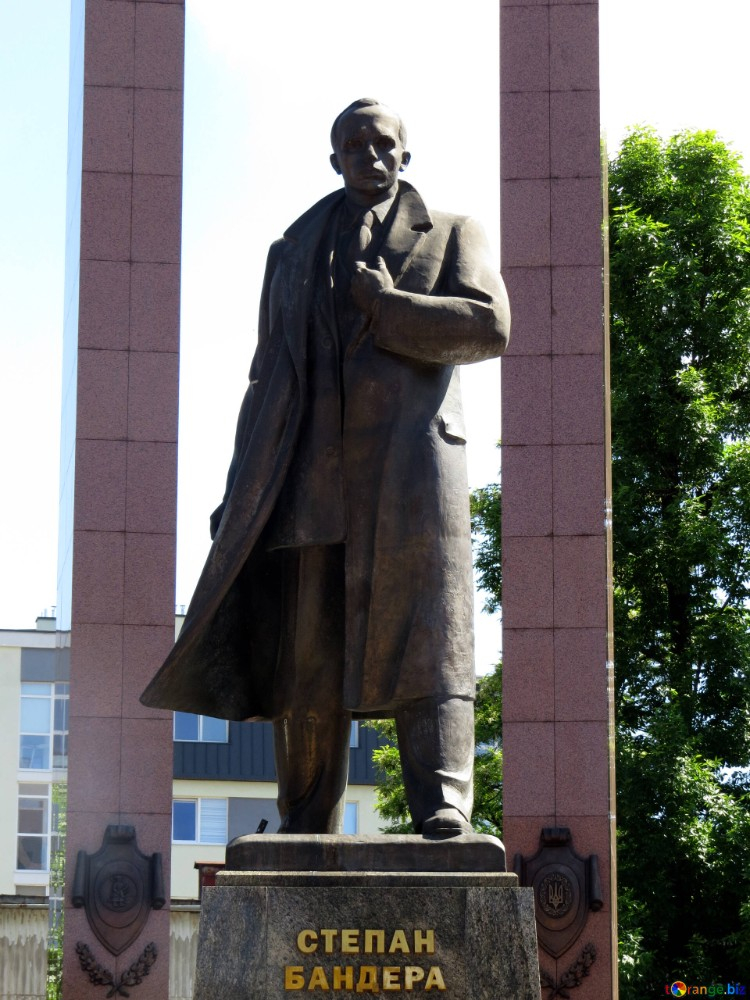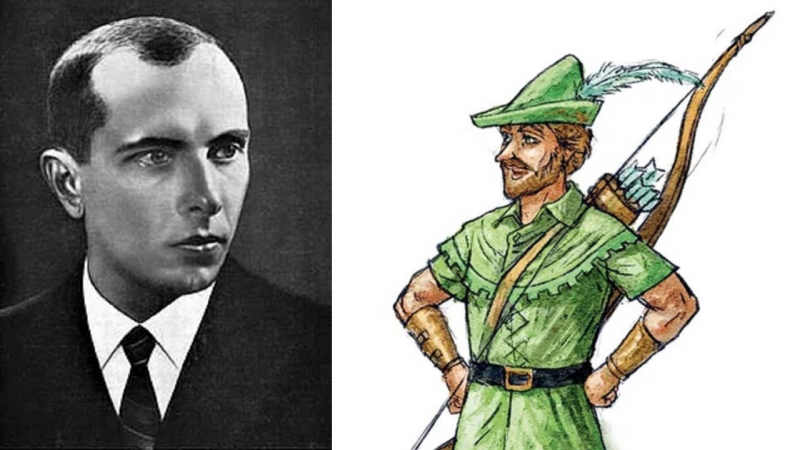Stepan Bandera
Stepan Andriyovych Bandera (1 January 1909 - 15 October 1959) was a Ukrainian far-right leader of the radical, terrorist wing of Organization of Ukrainian Nationalists named OUN-B. He is regarded as one of the most important historical figures in Ukraine.
Bandera was born in the Austro-Hungarian Empire, in economically backward Galicia (officially Kingdom of Galicia and Lodomeria, created after the first partition of Poland, now in Western Ukraine), into a patriotic and religious family. Bandera became radicalized during this time. He enrolled at the Polytechnic in Lwów, where he founded Ukrainian nationalist organizations. Bandera was sentenced to death for his role in the 1934 assassination of Poland's Interior Minister Bronisaw Pieracki, but his sentence was commuted to life in prison. As a result of the invasion of Poland in September 1939, he was released from Bereza Kartuska Prison and relocated to Kraków, in the German-occupied zone of Poland, where he maintained close ties with the Abwehr and Wehrmacht.
During World War II, Bandera worked with Nazi Germany on several occasions, and when Germany invaded the Soviet Union on 22 June 1941, he prepared the 30 June 1941 Proclamation of Ukrainian Statehood in Lviv, pledging to work with Germany. However, the German authorities saw it as an attempted coup, and Bandera was arrested by the Gestapo and held under house arrest on July 5, 1941, and later as an honorary inmate in Berlin prison. Bandera was transferred to Zellenbau, a section of the concentration camp Sachsenhausen for political inmates, after January 1942, but was kept in a special, comparatively comfortable detention. Bandera was released in October 1944, as Nazi Germany was rapidly losing ground in the war due to the advance of Allied armies. The Germans hoped that by working with OUN-B, he would be able to deter the advancing Soviet forces, but Bandera refused to cooperate and fled south within Germany. After the war, Bandera and his family relocated to West Germany, where he continued to lead the OUN-B and collaborated with several anti-communist organizations, including the Anti-Bolshevik Bloc of Nations, as well as US and British intelligence agencies. Bandera was assassinated by KGB agents in Munich, West Germany, fourteen years after the war ended.
On 22 January 2010, Ukraine's President Viktor Yushchenko awarded Bandera the posthumous title of Hero of Ukraine. The European Parliament, Russia, Poland, and Jewish politicians and organizations all condemned the award. President Viktor Yanukovych declared the award illegal, because Bandera was never a Ukrainian citizen, a requirement for receiving the award. This announcement was confirmed by a court decision in April 2010. In January 2011, the award was officially annulled. In August 2019, the Ukrainian parliament rejected a proposal to bestow the award on Bandera.
Bandera remains a divisive figure in Ukraine, with many Ukrainians, including some Ukrainian diaspora scholars, hailing him as a role model hero, martyred liberation fighter, while others, particularly in the south and east, condemn him as a fascist, Nazi collaborator, and war criminal who was responsible for the massacres of Polish and Jewish civilians with his followers.












